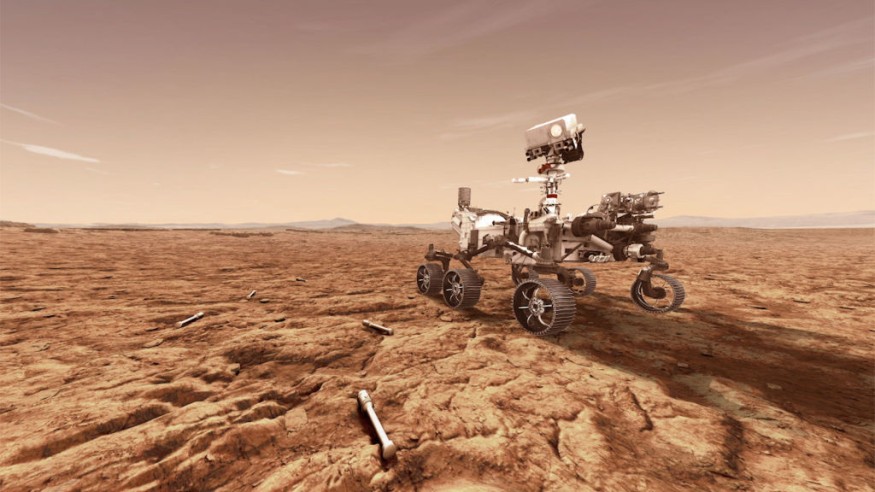A discovery aboard the International Space Station or ISS may help scientists generate the 'fuel' to help plants endure such stressful circumstances.
To endure the severities of space on deep-space missions, food developed and grown outside of Earth requires a little extra help from microbes.
Having their findings published in Frontiers in Microbiology (Methylobacterium ajmalii sp. nov., Isolated From the International Space Station), study authors collaborating with NASA described such a discovery and isolation of four strains of bacteria that belong to the family Methylobacteriaceae form various areas aboard the ISS through two consecutive flights.
A EurekAlert! report aid, while one strain was identified as Methylorubrum rhodesianum, the other three were not discovered before and belonged to what was described as a "novel species."
Meanwhile, the rod-shaped motile microorganisms were given the designations IF7SW-B2T, IIF1SW-B5, and IIF4SW-B5, with genetic exploration presenting them to be closely linked to Methylobacterium indicum.
Essentially, Methylobacterium species are involved in phosphate solubilization, nitrogen fixation, plant growth promotion, abiotic stress tolerance and biocontrol activity against plant pathogens.

'Methylobacterium Ajmalii'
In honor of Dr. Ajmal Khan, a prominent Indian biodiversity scientist, the research team has suggested calling this novel species 'Methylobacterium ajmalii.'
Commenting on the most recent discovery, Dr. Katshuri Venkateswaran (Venkat) and NASA's Jet Propulsion Laboratory or JPL's Dr. Nitin Kumar Singh said that the strains might possess 'biotechnologically useful genetic determinants' for the crops' growth in space.
Nevertheless, further investigational biology is required to prove that it is certainly a probable game-changer for space farming.
The experts said that to grow plants in extreme locations where there are minimal resources, separation of novel bacteria that help in promoting growth of plant under stressful circumstances is crucial.
Other researchers, along with JPL collaborating on this discovery, are based at the University of Southern California, Los Angeles; the University of Hyderabad in India, and Cornell University.
With NASA one day seeking to take humans to the Red Planet's surface, and possibly beyond, the United States National Research Council Decadal Survey suggests that the space agency uses the ISS as a 'test-bed' for studying microorganisms, explained Singh and Venkat.
The ISS Lab's Expansion
The said report specified that as part of the current surveillance mission, eight locations on the ISS are being closely observed for microbial growths and have been for the past six years.
These sample areas comprise where the crew is assembling or where experiments are done, like the plant growth chamber, for one.
While hundreds of microbial samples from the ISS have been examined to date, roughly 1,000 samples have been collected from different other areas on the space station although they are waiting for a trip back to this planet where they can be analyzed.
Venkat and Singh said that the eventual objective is to bypass such a long process and possibly find the new novel strains through the use of molecular biology equipment established and demonstrated for the ISS.
Instead of returning samples back for analyses on Earth, there is a need to integrate bacterial monitoring system that collect, process and examine samples in space through the use of molecular technologies.
Lastly, the two experts also said that this miniaturized 'mics in space' technology, development of the biosensor, will help NASA as well as other space-faring countries attain safe and sustainable exploration of space for longer periods of time.
A related report about bacteria on Mars is shown on Anton Petrov's YouTube video below:
RELATED ARTICLE : Trial Device MOXIE Could Contribute to Rocket Launch Off Mars
Check out more news and information on Mars on Science Times.
© 2026 ScienceTimes.com All rights reserved. Do not reproduce without permission. The window to the world of Science Times.











